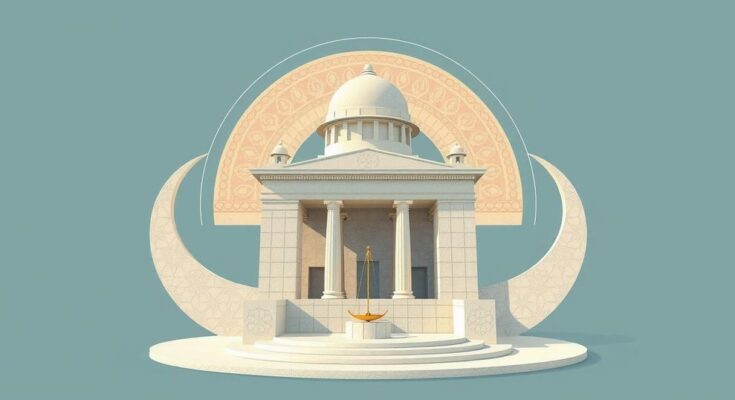Lebanon has appointed Nawaf Salam as the new Prime Minister, succeeding Najib Mikati, with a 24-member cabinet set to convene on February 11. Salam’s government is committed to economic reforms and upholding UN Resolution 1701 following past conflicts. International observers have expressed support for the new government’s reform agenda, critical for Lebanon’s future stability.
Lebanon has officially announced a new government headed by Nawaf Salam, as confirmed by President Joseph Aoun. This decision follows the acceptance of outgoing Prime Minister Najib Mikati’s resignation. The new government comprises 24 ministers and is set to hold its inaugural session on February 11, at Baabda Palace, after extensive political negotiations spanning over three weeks.
Prime Minister Nawaf Salam has indicated that his administration will focus on vital economic reforms aimed at attracting reconstruction funding and investments, especially following the conflict between Israel and Hezbollah last year. In his address post-appointment, Salam underscored the government’s commitment to uphold UN Resolution 1701, which ended the 2006 hostilities, stating, “reform is the only path to real salvation.”
The new cabinet features key appointments including Tarek Mitri as Deputy Prime Minister, Michel Mnassah as Minister of Defence, and Youssef Rajji as Minister of Foreign Affairs. Amidst political strains due to loomed disagreements surrounding the Shiite ministerial appointments traditionally associated with Hezbollah and Amal Movement, the government formation signals a potential path towards addressing these divisions.
United Nations Special Coordinator for Lebanon, Jeanine Hennis-Plasschaert, praised the newly formed government, suggesting it brings hope for a fresh chapter in Lebanon’s political landscape. The United Nations aims to collaborate with this government to support essential reforms promoting security and stability in the country. Similarly, the European Union, represented by Ambassador Sandra De Waele, conveyed its backing for the government’s commitment to reform, emphasizing the necessity for implementation of these changes to secure Lebanon’s future.
Lebanon has been experiencing a political stalemate, exacerbated by disagreements regarding ministerial appointments among various factions. The new government formation comes amid pressing economic challenges and the aftermath of military confrontations, particularly those involving Hezbollah and Israel. The composition of the cabinet reflects the complexities within Lebanese politics, as factions vie for influence while the country grapples with reconstruction and reform needs.
The formation of Lebanon’s new government under Prime Minister Nawaf Salam marks a significant step towards potential political stability and economic reform. Key appointments reflect a blend of experienced individuals poised to address pressing national challenges. The international community has welcomed this development, offering support for the government’s reform agenda as Lebanon seeks to move past recent turmoil and focus on securing a better future.
Original Source: www.dailynewsegypt.com




